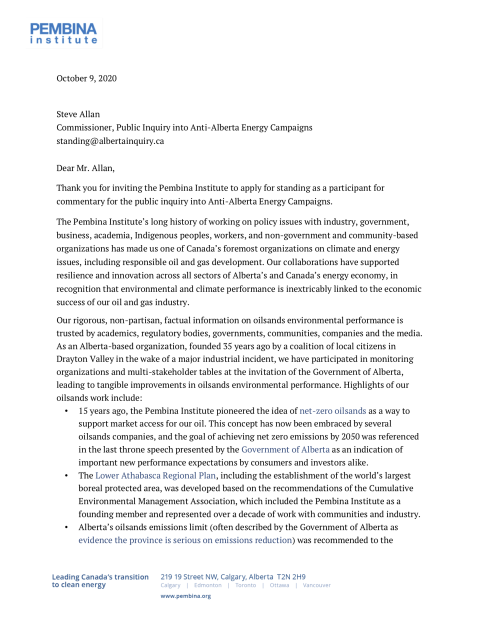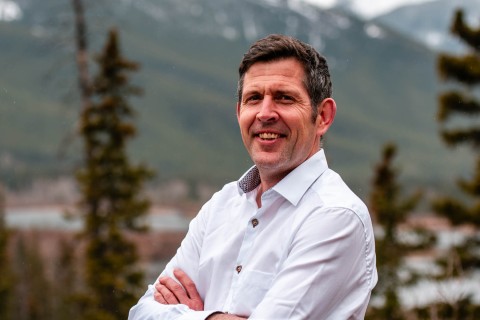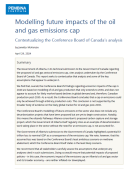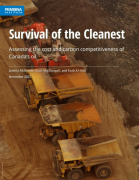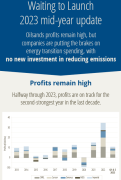The Pembina Institute provided the following response to a request to participate in the public inquiry into Anti-Alberta Energy Campaigns, made in September 2020.
Thank you for inviting the Pembina Institute to apply for standing as a participant for commentary for the public inquiry into Anti-Alberta Energy Campaigns.
The Pembina Institute’s long history of working on policy issues with industry, government, business, academia, Indigenous peoples, workers, and non-government and community-based organizations has made us one of Canada’s foremost organizations on climate and energy issues, including responsible oil and gas development. Our collaborations have supported resilience and innovation across all sectors of Alberta’s and Canada’s energy economy, in recognition that environmental and climate performance is inextricably linked to the economic success of our oil and gas industry.
Our rigorous, non-partisan, factual information on oilsands environmental performance is trusted by academics, regulatory bodies, governments, communities, companies and the media. As an Alberta-based organization, founded 35 years ago by a coalition of local citizens in Drayton Valley in the wake of a major industrial incident, we have participated in monitoring organizations and multi-stakeholder tables at the invitation of the Government of Alberta, leading to tangible improvements in oilsands environmental performance. Highlights of our oilsands work include:
- 15 years ago, the Pembina Institute pioneered the idea of net-zero oilsands as a way to support market access for our oil. This concept has now been embraced by several oilsands companies, and the goal of achieving net zero emissions by 2050 was referenced in the last throne speech presented by the Government of Alberta as an indication of important new performance expectations by consumers and investors alike.
- The Lower Athabasca Regional Plan, including the establishment of the world’s largest boreal protected area, was developed based on the recommendations of the Cumulative Environmental Management Association, which included the Pembina Institute as a founding member and represented over a decade of work with communities and industry.
- Alberta’s oilsands emissions limit (often described by the Government of Alberta as evidence the province is serious on emissions reduction) was recommended to the Government of Alberta by the Pembina Institute, oilsands companies and other environmental organizations working together to advance Alberta’s interests.
- Our work and metrics reporting on oilsands environmental performance is foundational to environmental and social metrics used by investors today.
- The Royal Society of Canada Expert Panel referenced our work in their Environmental and Health Impacts of Canada’s Oil Sands Industry report of December 2010.
- The Alberta Energy Regulator, Alberta’s Auditor General and the Commission for Environmental Cooperation validating our research into challenges posed by oilsands tailings and regulatory gaps and solutions.
Because the Pembina Institute has been working on energy and environmental issues in Alberta for decades, many oilsands environmental improvements can be traced to an issue Pembina Institute drew attention to or for which we suggested a policy or technological solution to government, industry or local communities. We are proud of our work to improve environmental performance in the oilsands and in seeking to represent the public interest. The evidence is clear that Alberta, Canada, and the oil and gas industry all must do more to reduce emissions consistent with changing market demands as well as Canada’s stated goal under the Paris Accord to achieve net-zero emissions by 2050. You can find the full record of our oilsands research from 2003–2020 at https://www.pembina.org/pubs.
The Pembina Institute remains committed to collaborating to advance responsible energy development in Alberta. As a not-for-profit and charity, we have always been open about the sources of funding that enable us to complete our important work. As we have previously presented, a small proportion of our program work has been supported by grants from international sources, which is both legal and appropriate. An analysis by the Muttart Foundation for charitable organizations in 2016 concluded:
“In Alberta, the top 10 recipients of foreign funding accounted for 82.5% of all foreign funding reported. Indeed, the top recipient — the University of Calgary — accounts for 42% of all foreign funding reported by Alberta charities. Others in the top 10 include four post-secondary institutions, three religious charities, an international-development charity and an arts organization.”
While oil and gas are important to Canada’s economy, climate change is a complicated, global issue and we need to work together to solve it. We strongly reject the premise that working to improve environmental performance in the oilsands or advocating that Alberta should do its share to reduce greenhouse gas emissions is anti-Albertan. Prior to the launch of the inquiry we were extremely disappointed and disturbed by the misinformation about our work and the targeting of some our current and former employees. Nevertheless, in a bid to move past overheated rhetoric and reduce polarization over climate and energy issues in Alberta the Pembina Institute would consider sharing our published work with the inquiry subject to the following conditions to address issues around procedural fairness:
- Prior to the Pembina Institute applying to participate in the inquiry, we are provided with all submissions, evidence and reports received by the inquiry to date, including preliminary submissions received by the inquiry between July 4, 2019 and September 14, 2020, that reference the Pembina Institute;
- Prior to the Pembina Institute applying to participate in the inquiry, we are provided with summaries of all interviews conducted by you or inquiry staff to date that referenced the Pembina Institute;
- Pursuant to Rule 23 of the Rules of Procedure and Practice for the inquiry, you grant the Pembina Institute the right to cross-examine any person who provided submissions or evidence to the Inquiry pertaining to the Pembina Institute;
- Rather than limiting the Pembina Institute’s input to the inquiry to matters “on which [the inquiry] would like to have [our] input and perspective”, as per your letter of September 23, 2020 and Rule 19 of the Rules of Procedure and Practice, the Pembina Institute is permitted to comment on any matter within the scope of the terms of reference for the inquiry;
- The Pembina Institute has the right to have the assistance of legal counsel in preparing for any submissions to or appearances before the inquiry and to have legal counsel present at any appearances before the inquiry;
- The inquiry will pay the costs incurred by the Pembina Institute to retain legal counsel in this matter.
Since the outset of this inquiry, we have been concerned that its purpose was pre-determined and intended to find all factual and legitimate criticisms of oilsands environmental impacts and regulatory gaps as “misconduct.” The conduct of the inquiry to date — including the recently approved terms of reference, extended timelines and costs, and the lack of transparency and public accountability around process — has only amplified these concerns, and as such we have reasonable basis for rejecting the opportunity to engage with the inquiry.
That said, because we stand by our record of constructively contributing to oilsands environmental improvements that are necessary to improve Alberta’s competitiveness and reputation on the global stage — and because we believe the vast majority of Albertans want to move beyond polarization — we are prepared to engage with the inquiry provided the conditions above are met. However, we reserve the right to withdraw from participation at any time and to take any legal steps we deem necessary if we determine that the substantive shortcomings of the inquiry or our concerns about procedural fairness outweigh any benefits of participating in this process.
We look forward to your response.
Yours sincerely,
Simon Dyer
Deputy Executive Director, The Pembina Institute
cc: Linda Coady, Executive Director, Pembina Institute; Richard Secord, Ackroyd LLP


